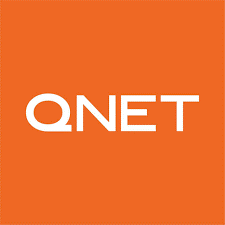What Is the QNET Against Scams Campaign? The Say No Campaign, Media Engagement, and Compliance Hotlines

The “QNET Against Scams” initiative has become a key pillar in how the global lifestyle and wellness company responds to concerns about fraud, brand misuse, and false job/visa offers in Africa. The campaign consists of several components, including the Say NO! 360 marketing communication campaign, active media engagement, and compliance hotlines. These are designed to protect consumers, safeguard the QNET brand, and reduce victimization by third-party fraudsters. Here’s how it works, what’s been done so far, and what impact seems to be emerging.
What the “QNET Against Scams” & Say NO! Campaigns Are
- Core purpose & messages
“QNET Against Scams” is QNET’s umbrella effort to counter misinformation, illegal migration scams, human trafficking via fake job offers, and other dishonest practices that misuse its name. The “Say NO!” part is more directly focused on fraudulent job offers, illegal migration promises, and human trafficking, especially in West Africa. - Timeline & geography
The “Say NO!” campaign was launched in November 2023 in countries including Nigeria, Burkina Faso, and Senegal. In Ghana, “QNET Against Scams” is also active, with public-education efforts in Ghana, Senegal, and Sierra Leone. - Key pillars (“Illuminate, Unite, Safeguard”)
QNET describes its approach under themes like Raising Awareness (“Illuminate”), Fostering Collaboration (“Unite”), and Preventing Exploitation (“Safeguard”). These aim to inform the public, work with authorities and stakeholders, and equip communities to recognize deceptive offers.
Media Engagement & Public Awareness Activities
To drive its message, QNET has put together a multi-pronged media strategy:
- Traditional media & outdoor advertising
The campaigns use billboards, radio spots, print media, TV, and other channels to reach communities. For example, in Ghana the “Against Scams” campaign is seen on billboards across major roads and near public spots; in Nigeria, radio and pamphlet distribution are part of the mix. - Product workshops and media briefs
QNET has held media-focused workshops to “clear the air” about misconceptions, explain its business model, demonstrate real products, and address allegations or misuses of the brand. In Liberia, a recent workshop with local journalists included one-on-one interviews, product demos, and discussion of common scam misrepresentations. - Grassroots & regional reach
The campaign goes beyond big cities: rural and suburban regions of Ghana, Senegal, Burkina Faso etc. are part of on-ground activations. - Digital & social media tools
Social media posts, online portals (including QNET’s Scam Notice page), and WhatsApp channels help circulate warnings and official clarifications.
Compliance Hotlines and Reporting Mechanisms
An important part of the campaign is enabling people to report suspected misuse of QNET’s name or other scam behavior:
- WhatsApp hotline & email
In many African markets, QNET provides a compliance WhatsApp hotline +233 256 630 005 as a reporting channel for suspicious job offers, fraudulent impersonations, or misuse of the brand. Email for reports is network.integrity@qnet.net. - Scam Notice / Safety Resource Pages
QNET publishes guidance on its website (“QNET Scam Notice”), explaining different kinds of scams (job scams, phishing, travel-visa fraud, etc.), how to detect them, and what to do if approached. - Language / Localization
Hotlines and reporting tools are available in multiple languages (English, French) in some regions and tailored for local contexts.
Why This Matters & What To Watch Out For
This campaign matters because misrepresentation and scams don’t just harm individuals. They erode trust in legitimate direct-selling businesses, and they create regulatory backlash. The QNET campaign is trying to draw boundaries: establishing what QNET is not doing (promising jobs, investment returns, or overseas visas in return for money), and proactively alerting people as to what they should do when approached with suspicious offers.
Here are some signs to watch out for:
- Any job offers or visa promises tied to paying upfront fees, or unsolicited contact over social media
- Claims of “guaranteed income” or quick money without clear product-sales or effort
- Requests to keep interactions secret, or to make payments before verifying credentials or introducing products
- E-mails from personal or non-official domains purporting to represent QNET
Reporting tools are there; using them helps.
For more valuable information visit our website.




